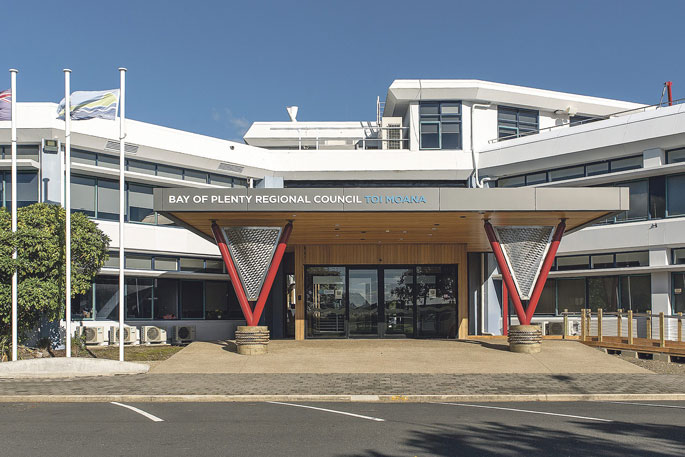More than 5000 people's Bay of Plenty Regional Council rates will be significantly different from last year.
Differences representing an increase of more than 40 per cent have been calculated for some ratepayers, while the regional council says others will be paying less.
It says the increases are due to historical undercharging on the part of the district and city councils, which have invoiced rates on behalf of the regional council previously.
This huge jump in rates may surprise some ratepayers, as rate rises indicated in the regional council's annual plan signalled a total average rate increase of 2.2 per cent, which included a general rates increase of 5.8 per cent.
Recent property revaluations carried out in Tauranga City Council and Kawerau District Council districts, it warns, will also impact the final rate.
In a few weeks' time, ratepayers will receive their first rates invoice from the regional council.
Since it was established in 1989, the regional council's rates have been invoiced and collected by the seven district and city councils within the Bay of Plenty region.
This year, it has decided to carry out its own invoicing and rates collection, so ratepayers will receive separate invoices from their district council and the regional council.
The regional council says this would allow them to be more transparent and accountable for the work they do.
Letters have been sent out to ratepayers to explain the change and the regional council's website provides a database on which people can search for their rates information, including total rates to be paid this year, along with a detailed breakdown of general and targeted rates, and the amount paid last year.
At least one Whakatāne resident's regional council rates had increased from $262.36 in 2021-22 to $377.36 in 2022-23, an increase of $115.
In a written statement, regional council's chief financial officer Kumaren Perumal says the discrepancies found in 5144 properties out of the 147,000 rating units throughout the region are due to incorrect application by city and district councils to the regional council's rating factors.
"In setting up our new rates service, we performed a series of integrity checks to ensure that our technology system replicated the rates calculation results the territorial authorities across the region had assessed for the previous (2021/22) rating year. These checks were done to ensure that our system performed as expected, in readiness for the 2022/23 rating year.
'The process confirmed a 99.96 per cent match against the rates collected by the city and district councils. It also revealed just over 5000 properties where the Bay of Plenty Regional Council's rating factors had been incorrectly applied. This has resulted in both over and undercharging of regional rates for affected properties across the region for the 2021/22 rating year.”
Perumal says there are three main reasons for the errors.
Incorrect area limits were being used for river scheme rates, an incorrect river scheme rate was being applied and incorrect treatment of rate charges were being applied to rating apportionments.
'The benefits for collecting our rates ourselves include greater control and consistency over the rates collection process for the region.”
Perumal says ratepayers who have been historically undercharged can rest assured that recovery of historical rates will not be sought, however, the correct rate charge for affected properties will take effect from this rating year.
For property owners who were overcharged, legislation required rates to be reassessed for the current year and up to five rating years prior and will result in a credit being applied to the ratepayers' rates account.
'The rates team will be contacting ratepayers who are impacted before invoices are sent out. If ratepayers have questions or concerns on this matter, they should visit our website to check their rates for 2022/23 via our property search function or call our dedicated rates phone number 0800 BOP RATES (0800 267 728).”
The regional council were not able to provide information about the total amount of rates it had undercharged for over the past five years before the Beacon went to print.
-Local Democracy Reporting is Public Interest Journalism funded through NZ On Air




0 comments
Leave a Comment
You must be logged in to make a comment.